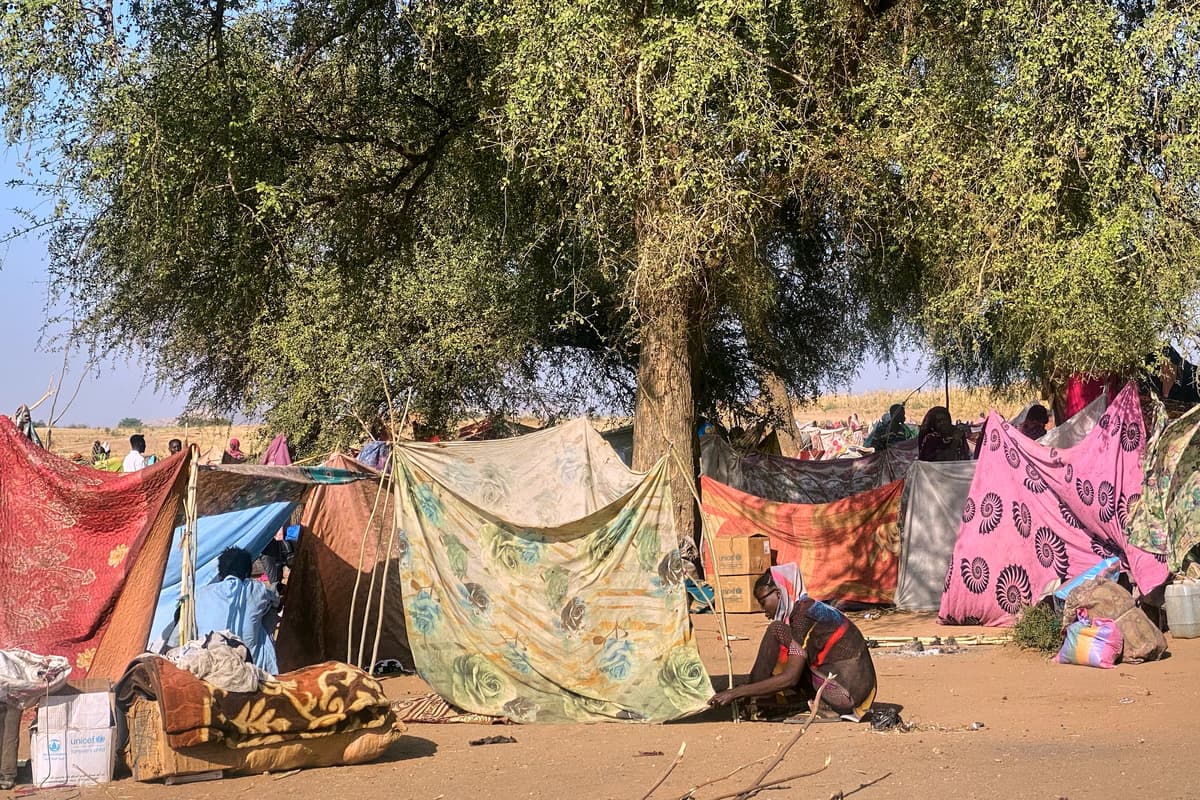Can President Trump End the Atrocities in ‘The Most Violent Place on Earth’?
America can mediate between the top supporters of the two opposing factions in Sudan, Saudi Arabia and the United Arab Emirates.

President Trump, who prides himself of ending wars, is setting his sights on Sudan, where two American Gulf allies back opposite sides in a war marked by horrific atrocities that hardly ever garner Western attention.
The war, which has exacted more than 40,000 deaths since 2023 and forced 14 million people out of their homes, seems like a reprise of the early 2000s genocide in the western Sudanese Darfur province. It pits the Sudanese army chief, General Abdel Fattah al-Burhan, against a faction led by his former deputy, General Mohamed Hamdan Dagalo, who heads a group calling itself the Rapid Support Forces.
The Darfur war that was launched in 2003 outraged Americans and was widely called a genocide. Like then, the RSF, which is mostly composed of Islamists known as the Janjaweed, is accused of committing unspeakable atrocities. The Sudanese army, though, is also accused of horrific attacks on civilians.
The Sudanese war “wasn’t on my charts,” Mr. Trump said Wednesday at the White House, with the de-facto Saudi ruler, Crown Prince Mohammed bin Salman, at his side. “His majesty would like me to do something very powerful having to do with Sudan,” he added, so “we’re going to start working on Sudan.”
The United Nations, which is running humanitarian efforts in Sudan, welcomes the “efforts of the United States and those of any and all member states who are working to support the end of this conflict,” its spokesman Stephane Dujarric, told the Sun Thursday. UN officials on the ground have been in touch with American officials, he added.
One thing Washington can do better than the UN, or anyone else — and do it even before being dragged into Sudanese rivalries — is mediate between the top supporters of the two opposing Sudanese factions. The Saudi Prince Mohammed, known as MbS, is backing General Burhan’s Sudanese army. His neighbor, the United Arab Emirates, is financing and arming the RSF. Both Riyadh and Abu Dhabi are close American allies.
Moreover, the Saudis and Emiratis are allied on many issues, including their opposition to the Islamic Republic of Iran and its proxies. Along with Egypt, both are currently members of an American-led “Quad” group for Sudan, an impoverished African country on the Red Sea.
Yet Riyadh and Abu Dhabi are divided over which side of the Sudanese war to support. Their dispute dates back to a war both of them fought together — the struggle to defeat the Iran-backed Houthis in Yemen.
Prince Mohammed launched that war in 2015, and it ended with “spectacular failure” for the anti-Houthi alliance, a former Israeli ambassador to South Sudan, Haim Koren, tells the Sun. The UAE sensed that a defeat was afoot and left the Saudi-led coalition before a Yemeni cease-fire was signed in 2022.
As part of the Saudi-led coalition, Sudan sent troops to fight the Houthis. Many of the Sudanese soldiers dispatched to Yemen participated in the Darfur atrocities in the 2000s, but the coalition conveniently overlooked that detail.
The Sudanese forces in Yemen were led by General Hamdan Degalo of the RSF, also known as Hamati. He caught the eyes of the UAE rulers and they decided he should be the next Sudanese president. They increased their support of Hamati after Sudan’s decades-long ruler, Omar al-Bashir, was overthrown in 2019.
Since the war between the RSF and General Burhan was launched in 2023, the UAE furnished the RSF with drones and other arms, and financed arms purchases. Under heavy international pressure, Abu Dhabi said recently it would phase out that support, but that promise is yet to materialize in Sudan.
The atrocities in Darfur and the central Sudanese Kordofan province are unabated. In Darfur alone “more than 100,000 people have fled El Fasher and surrounding areas since late October, when the area was taken over by the RSF,” Mr. Dujarric said Thursday, adding that many people remain unaccounted for.
Sudan “has become the most violent place on earth,” Mr. Trump wrote on Truth Social Wednesday after speaking with MbS. Even earlier, Secretary of State Marco Rubio called his counterparts at Abu Dhabi, urging them to end support for the RSF. With that war finally on Washington’s radar screen, can the atrocities finally end?

